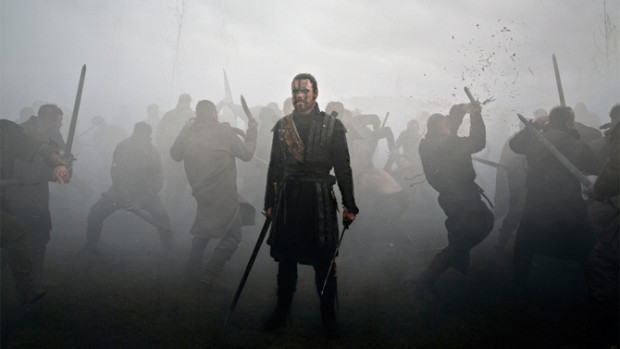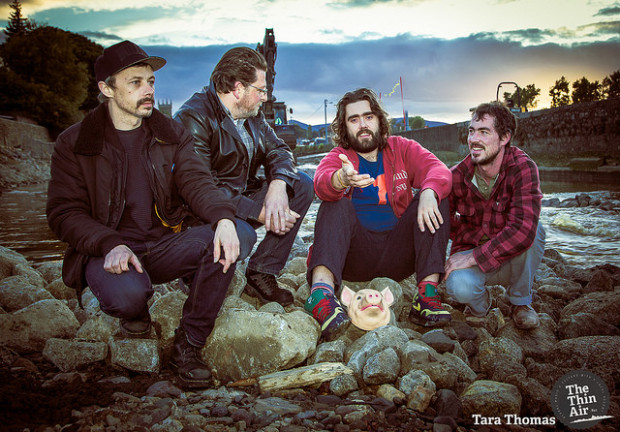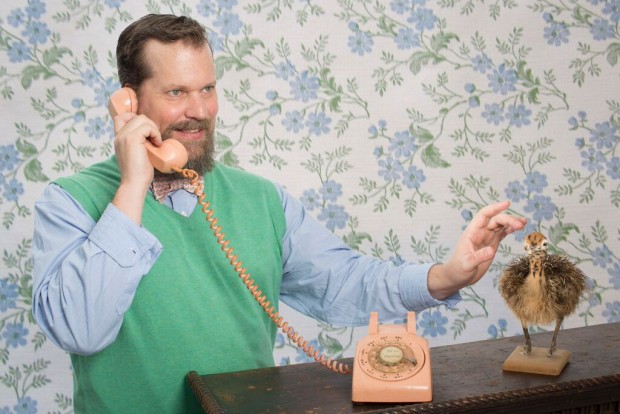In recent years, screen adaptations of Macbeth have sought to make an impression by courting relevance. Geoffrey Wright’s 2006 film, starring Sam Worthington in the lead, tranposed Shakespeare’s blood-coated tragedy to modern-day Melbourne, putting the verse in the mouths of rough cokehead gangsters who wouldn’t look out of place on the Sons of Anarchy set. For the BBC’s 2005 ShakespeaRe-Told series, Peter Moffat turned the theatrical into the gastronomical, casting James McAvoy as an ambitious sous chef chasing Michelin star glory. This new Macbeth, directed by Justin Kurzel (his sophmoric feature after 2011’s The Snowtown Murders), is the first high-profile film adaptation of the play since Roman Polanski’s Playboy-financed 1971 film, and marks a return to the foggy Highland hills of the original text, a desolate and hostile terrain hovering only an inch above savagery. Here Kurzel channels the muddy physicality of Polanski and the war drums of Kurosawa for a roaring, beautiful, urgent Macbeth, drenched in comic book colouring and powered by Michael Fassbender and Marion Cotillard’s entrancing double act as Shakespeare’s stabby social climbers.
The screenplay, by Michael Leslie, Jacob Koskoff and Todd Luiso (the other clerk from High Fidelity), opens with a bold interpretative flourish, wading into the debate about whether or not the Macbeths had children with a definitive ‘yah-hah’. Rather than the inaugural incantations of the witches, we begin at the funeral pyre of a young child in the exposed landscape, watched over by the grieving Thane Macbeth (Fassbender) and his wife (Cotillard). It’s a devious re-alignment of the play’s traumatic energies, pivoting the familiar story of regicide and madness as a malign outgrowth of parental grief and pain, and enriching Macbeth’s anxieties about fruitless crowns and future dynastic fragility. Imagery of dead children recurs, an effective if unsubtle marker of innocence lost and the unending cost of warrior life.
Shot with gruesome close-ups and 300-style slow-motion, the film is steeping in violence. Ambitious military leader Macbeth goes through the grim rituals before battling forces rebelling against the benign King Duncan (David Thewlis), flanked by lieutenants and potential rivals Banquo and Macduff (Paddy Considine and Sean Harris giving coiled beardy terseness). From then on, it’s much the same as how you remember it from class: the witches’ prophecies, the regicide, the phantom dagger, the guilt and hallucinations and final defeat. You probably don’t remember it looking this good though, blood and spit and bruised war paint vividly rendered in high digital contrast.
Fassbender attacks the verse, devolving from military coldness to homicidal fury, his mad king all jaguar swagger and gnashing teeth, giving a performance of demonic excitement. Cotillard’s Lady Macbeth is no cackling temptress, but vulnerable and sympathetic, her alert features growing anxious as her co-conspirator sinks in the moral tar. If her diminished responsibility sidelines her more than some productions, then in his own way so too is Macbeth, the emphasis on exterior action over interior reflection and the imagery of shadow soldiers shuffling through neon fog suggesting a relentless death march. This is not a subtle film, but Macbeth is hardly a subtle play. It draws its power from a direct visual language of blood and sacrilege, the dizzying escalation of its hero-villain and a relatively straightforward arc of sin and retribution. Approaching the source pragmatically, the film-makers have streamlined and shuffling the verse, emphasizing visual leanness over textual fidelity. Kurzel’s blunt style doesn’t communicate perversity in quite the same way as the shaggy-haired, cultish weirdness of Polanski’s film, but what the film does have is pure animal ferocity. This thing will bite your head off. Conor Smyth






